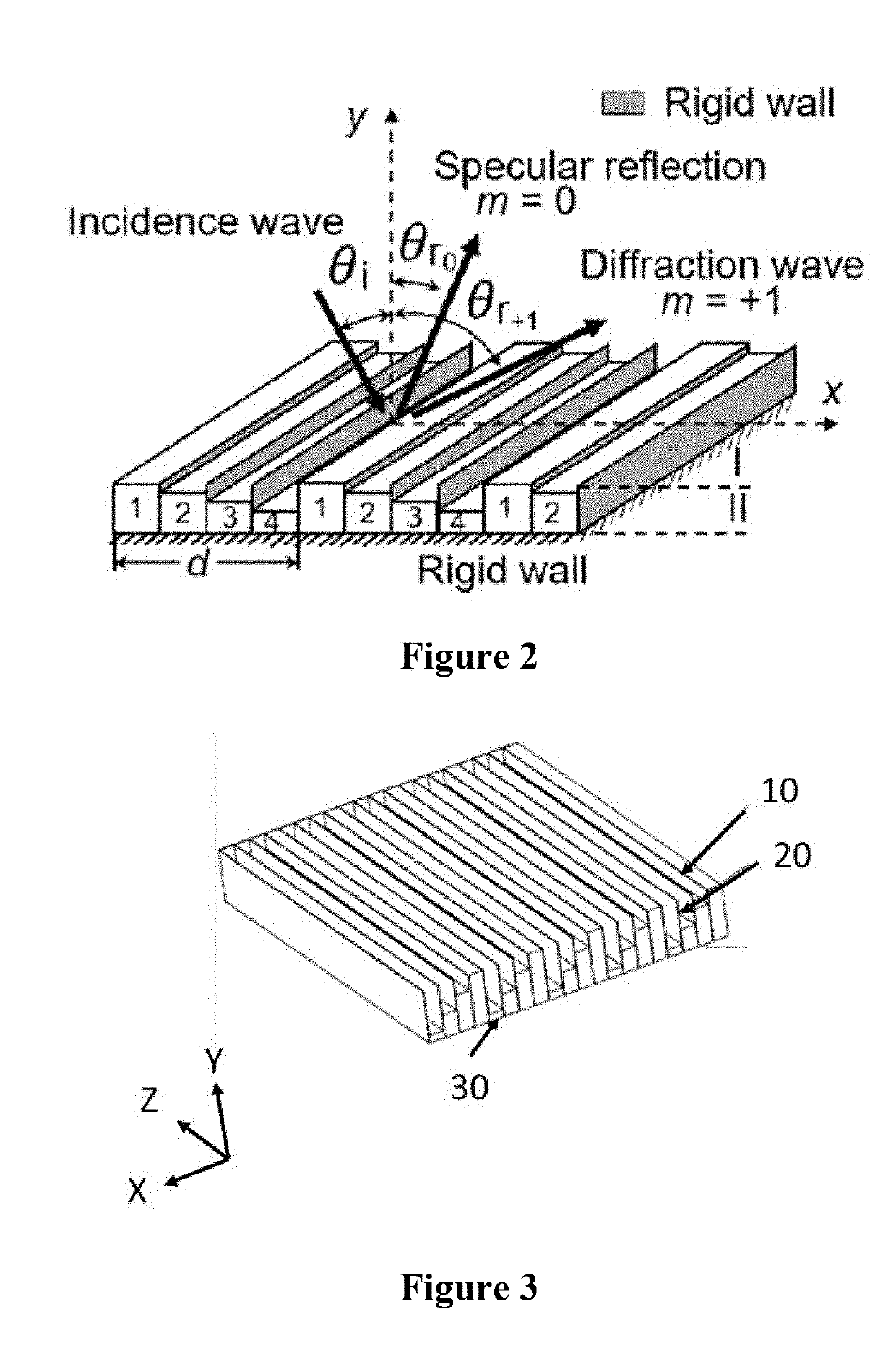Sound absorber with stair-stepping structure
a technology of sound absorber and stair step, which is applied in the direction of sound producing devices, instruments, etc., can solve the problems of limiting the robust use of membrane materials, the difficulty of most applications, and the flimsy material of membranes, so as to enhance the broadband sound absorption
- Summary
- Abstract
- Description
- Claims
- Application Information
AI Technical Summary
Benefits of technology
Problems solved by technology
Method used
Image
Examples
example
[0105]FIG. 9(a) shows a real part and an imaginary part of the characteristic impedance Z, normalized by the air impedance Z0 in a simulation and an experiment, and FIG. 9(b) shows a real part and an imaginary part of the characteristic wavenumber kc in a simulation and an experiment. The realistic material sample is tested in a Brüel Kjær Type 4206 Four microphone Impedance Measurement Tube [23] to validate the acoustic properties. In the test, the characteristic impedance Zc and the wavenumber kc of material are obtained. These two parameters are equivalent to the effective bulk modulus Ke and the density ρe in the JCA model and they can be calculated by Zc=ρece=√(Keρe) and kc=ω / ρe, where ce=√(Keρe) is the effective speed of sound. The Zc and kc in simulations are obtained by the bottom-up method.
[0106]FIGS. 9(a) and 9(b) show the comparisons of the real and imaginary parts of Zc normalized by the air impedance Z0 and kc between calculations and experimental results. Good agreemen...
PUM
 Login to View More
Login to View More Abstract
Description
Claims
Application Information
 Login to View More
Login to View More - R&D
- Intellectual Property
- Life Sciences
- Materials
- Tech Scout
- Unparalleled Data Quality
- Higher Quality Content
- 60% Fewer Hallucinations
Browse by: Latest US Patents, China's latest patents, Technical Efficacy Thesaurus, Application Domain, Technology Topic, Popular Technical Reports.
© 2025 PatSnap. All rights reserved.Legal|Privacy policy|Modern Slavery Act Transparency Statement|Sitemap|About US| Contact US: help@patsnap.com



